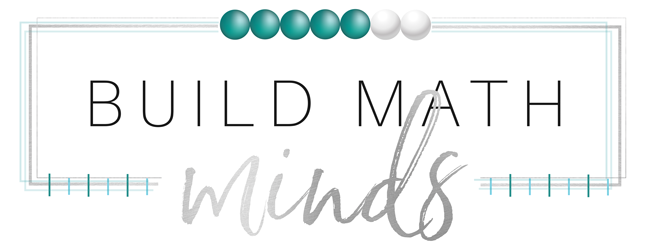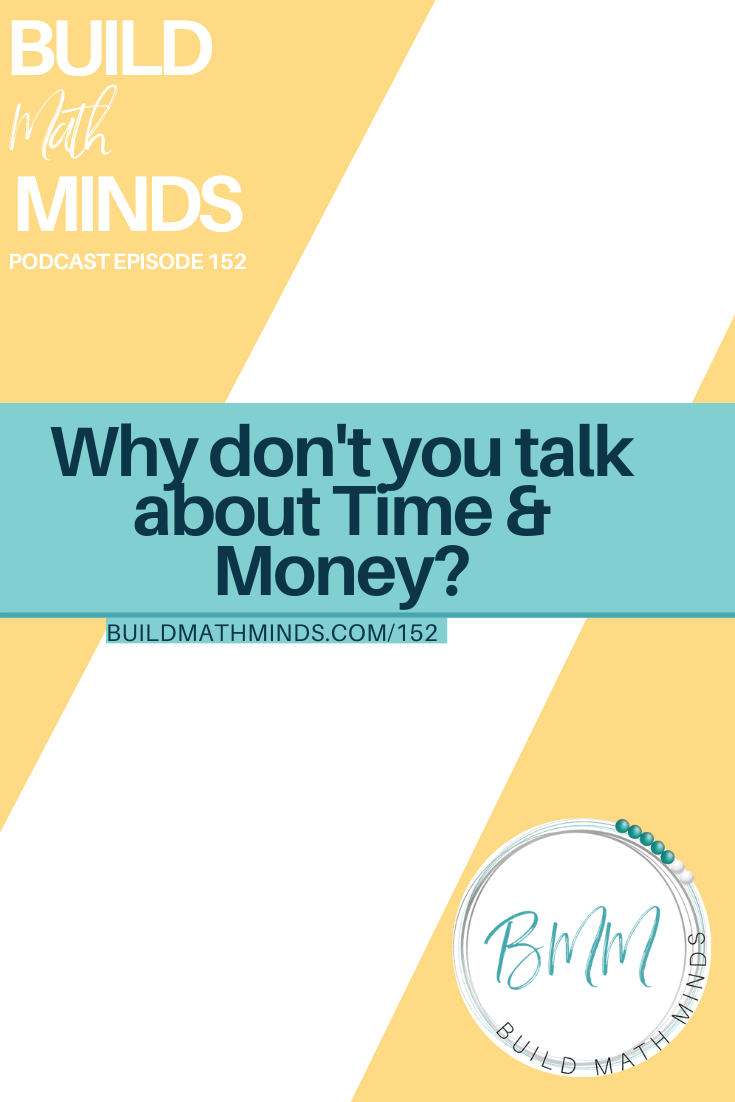Join the Build Math Minds PD site: buildmathminds.com/bmm to access the Math Strategies Sessions
Learning and Teaching Early Math: The Learning Trajectories Approach by Douglas Clements & Julie Sarama
The youtube video for this episode
Time/Measurement/Data/Geometry Playlist on YouTube
Welcome fellow Recovering Traditionalists to Episode 152: Why don’t you talk about Time & Money?
When I get emails and comments on the YouTube channel that are THANK YOUs it always brightens my day. If anything I’ve done has helped you and your students out, please email in and let us know. It’s info@buildmathminds.com. This week’s positivity comes from Helen. In December we did the first of our Math Strategy Sessions and had some technical difficulties the first few minutes. After the session Helen emailed us saying: Thanks so much for overcoming the technical challenge. The greatest gift this year was your informing my mindset and restoring the joy of figuring out mathematics and literally building our youth’s math minds. Best wishes to you and your team for a happy and healthy holiday and new year! Thank you so much Helen and to you and all those out there listening I hope you have a wonderful 2024.
In this week’s episode I’m answering the question “Why don’t you talk about Time & Money?”
Well first off my answer is I do, but not as much as other things. So if you do want to watch any videos I’ve done about time & money I have a playlist on my YouTube Channel for all the videos I do about Time/Measurement/Data/Geometry, You go to YouTube.com/buildmathminds you can check out all the playlists I have.
Secondly, there is a real reason why I don’t talk about them as much and a short excerpt from the book Learning and Teaching Early Math: The Learning Trajectories Approach by Douglas Clements & Julie Sarama explains it pretty darn well on page 210:
“When we were planning the National Research Council (NRC) report on early mathematics (NRC, 2009), we confronted the common presence of the topics of time, weight, and money in state standards. After reviewing the research, we decided that these were in many cases more appropriate as science or social studies, rather than mathematical, topics. Money is a useful representation to use in teaching and learning mathematics but coin recognition is, again, not mathematics.”
So that’s it, that’s my reason. Most of the concepts of time, weight, & money are NOT mathematical concepts…they are great contexts to write problems about but the learning of the concepts of time, weight, and money are not math. They are either science or social studies concepts and should be addressed during that time. For example, measurement and money systems differ by the part of the world you live in, so they are better suited to be addressed during social studies. However, once kids have an understanding of those systems you can use those as contexts for the word problems you are having students solve during math time.
Until next week my Fellow Recovering Traditionalists, keep Building Math Minds.




